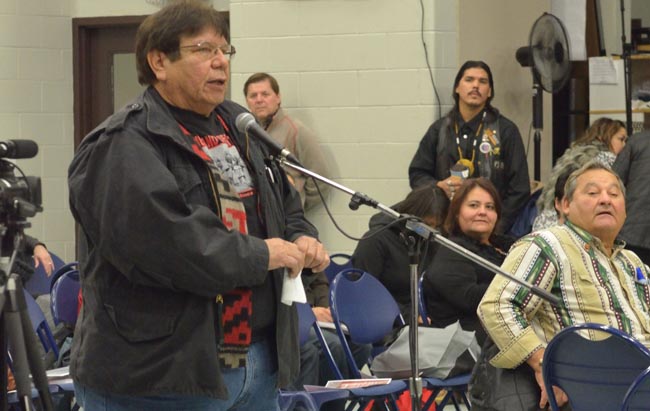Kettle & Stony Point to vote on land code

By Colin Graf
KETTLE & STONY POINT — Citizens of the Kettle and Stony Point First Nation are preparing to vote next week on whether to take control of land sales and leases on their territory by approving a land code that’s been years in the making.
Approving the land code will allow the Chief and Council of the First Nation – on the shores of Lake Huron between Sarnia and Grand Bend — to approve land sales between First Nation members, designate land for development, and to write their own land leases, according to manager Lorraine George. If approved by a band vote Mar. 6, the code will “take us out of” 34 sections of the Indian Act, she told Anishinabek News.
The new land code will make things more “streamlined and efficient”, said George, since such decisions will no longer have to be approved by Indian Affairs in Ottawa. The community waited 30 years for one parcel of land purchased by Council to be approved in Ottawa before it could be added to the First Nation’s land, she said. Opportunities for development on that land were lost during that time, George added. Federal bureaucrats will still have a hand in decisions about adding land to reserves, but even that process will be much faster, she explained.
Approval of the land code will help Council develop a 3-storey hotel and convention centre, announced by Chief Tom Bresette earlier this month. Also in the planning stage is a heritage centre, expected to be built on the land of the former Ipperwash Provincial Park – the scene of the deadly confrontation in 1995 between Anishinabek protestors demanding return of the park and the adjoining military base Camp Ipperwash. Protestor Dudley George died after being shot by an OPP officer. Negotiations have been underway for years, with no final agreement yet.
“We want our members to have opportunities to pursue business ventures, to live and work on reserve and to build and own our homes,” Bressette writes in an open letter to members . “By governing our lands under a land code, the Chippewas of Kettle and Stony Point will create a positive environment that will foster those opportunities,” the letter reads.
The KSP administration has spent at least 8 years working with INAC to create the land code, while also consulting members frequently, George said. The code must be approved by over 50% of the Nation’s 2,800 members to take effect, she said.
According to INAC’s website, around 110 of Canada’s 618 First Nations have signed with the federal government to develop land codes.

